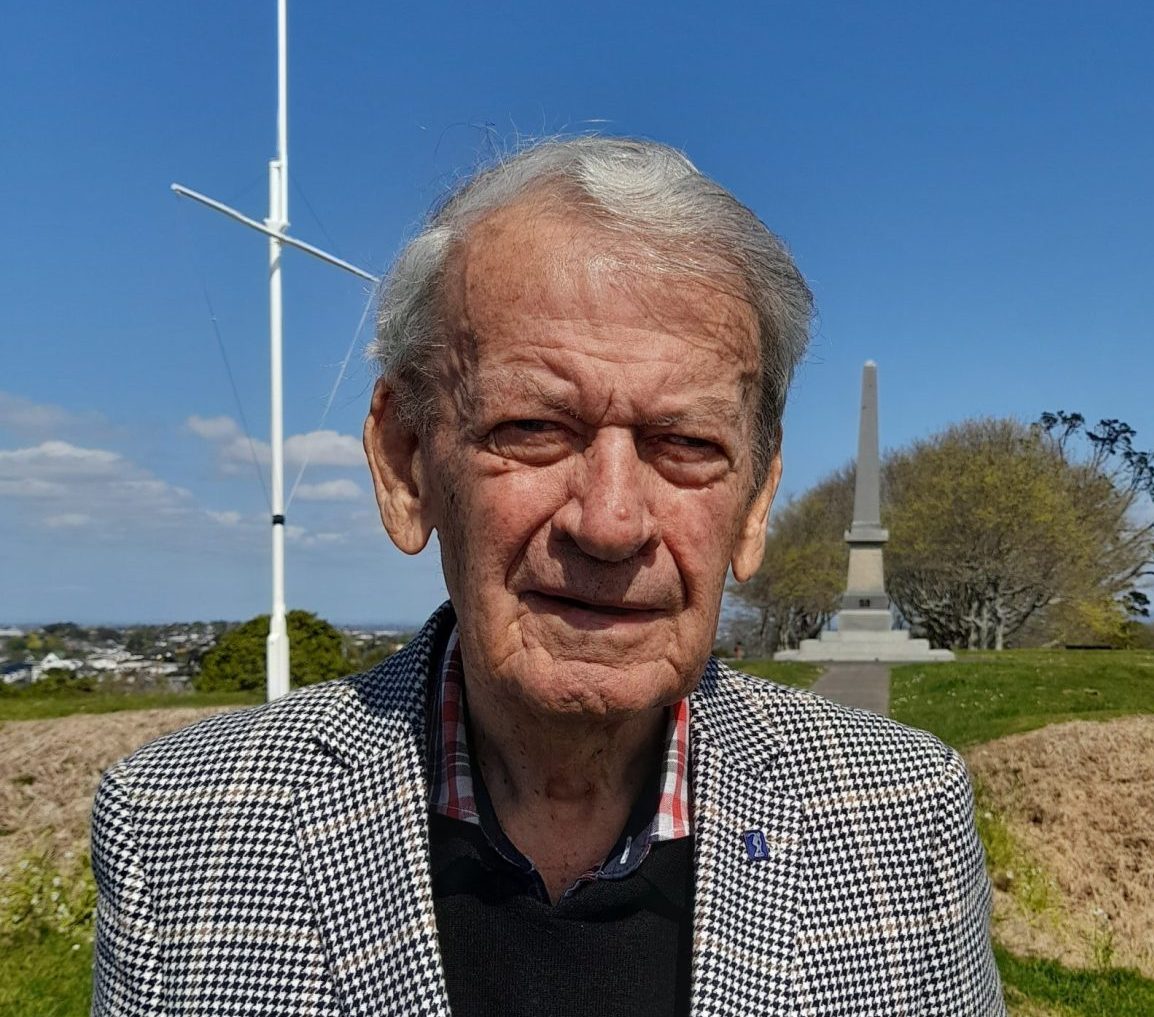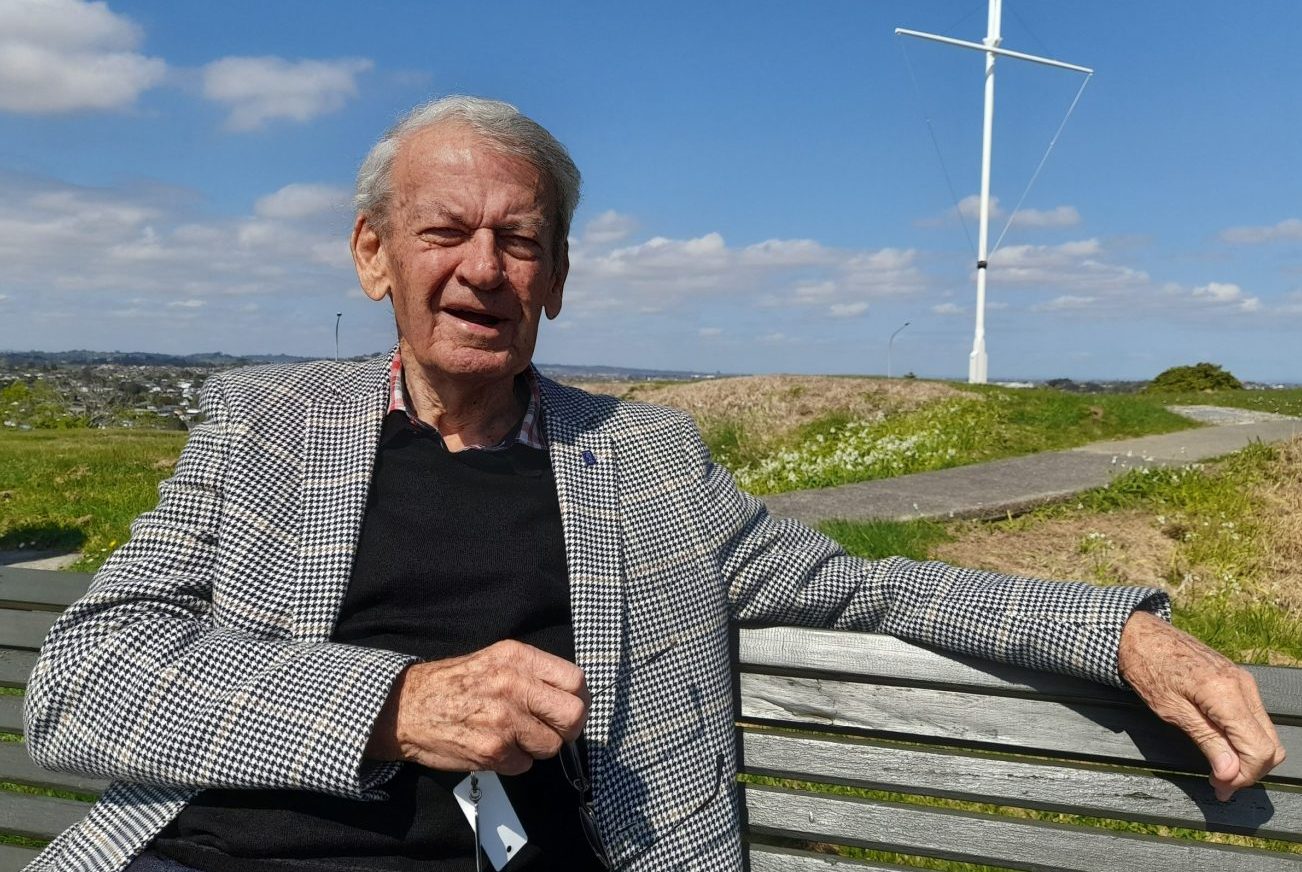
Morrin Cooper, who served as the last Mayor of Howick Borough Council from 1974 to 1989 before it became part of the former City of Manukau, will be 90 on December 2 and PJ thought we’d get in early to let everyone know!
How are you feeling?
Better than I felt this time last year. Health’s good, has been for many years, although I did have peritonitis once. I’ve no reason to be lethargic about mental things and try to keep my mind mentally alert by reading publications such as your own.
Is the prescription for your longevity a happy disposition?
I think it must be, with happy music and happy health. There’s no doubt about it.
You’re well-known for your sense of humour. Is laughter the best medicine?
I don’t know of anything better. Without taking the tops off any bottle. That helps, too, of course.
You’ve always been energised by having contact with people.
It became quite a hilarious statement I used to make when walking up and down the street in Howick, as if I did it 24 hours a day, which of course I didn’t. I’d walk up one side of the street and down the other side and always had somebody to talk to. Because I knew them personally. They used to give me the good, bad and indifferent about Howick. It was very important I got up to date stories, because Howick was a very enthusiastic town. It gained its historical detail from the people who have lived here for 175 years.
What were your proudest achievements as a councillor and Mayor of Howick?
Abolition of politics. There should be no political party affiliations in local government. I used to stand as an independent. Didn’t need any labels. I could only give by reason of my enthusiasm for the town. Having lived here for many years, having gone to school from Howick all the way into Auckland Grammar in 1952, I’d earnt the reputation to do my best, as people have done traditionally. The Howick and Districts Historical Society is a good example of that, how people can do good for the community without it being necessarily being known or advertised that they did do good for Howick.

There is a strong tradition of mentoring here. How was Sir William Stevenson?
Incredibly good. He’d have no hesitation getting his secretary to ring me at 11.45am in the morning and she’d say, “Sir William wants to see you at 12pm”. And I was expected to get in my sledge and drive over to Otahuhu where his office was, on his demand and command, because he always had something to say. He’d ring at 7am and be in some particular place in Howick prepared to give me the lesson for the day. He’d ring from Howick Beach and say, “the tide is out, I’ve got a good mind to get a D8 bulldozer and push all this metal up against the Marine Parade cliff”. To start creating the hardstand for the car parks we’re going to put in there one day. And shift the wharf along. How he’d get away with that nowadays I don’t know. He would talk at me, rather than talk to me. But he always had words of wisdom. He was a great mentor. His words were worth hanging on. He was a successful man in so many ways. To the best of my knowledge he was the only person that ever got an honorary degree from Auckland University for engineering because he built roads, structures. I was astounded when I became mayor there was nothing in Howick with his name or label on it. He’d been mayor for 12 years. When I suggested we should have a community centre in Howick, he said, “when are you starting it?”
When you stepped away from being an elected civic leader in 1989, were you proud Howick Borough was debt free?
I was, but I wasn’t proud of having to step away. To be told by an officer of local government in Wellington we were going to be better off under the city of Manukau in those days didn’t interest me one little bit. It had never been its own success.

How do you feel about the Howick Club now?
Very proud, and I understand there’s about 5000 members. It wasn’t my idea, although it had been an idea kicking around Howick for some years. The late Russ Rice and the late Bob Williamson, who was president of the business association, had tried a number of times to start a club. They couldn’t start a chartered club then because of the difficulty in getting a license and finding economical land to purchase, because land prices had gone sky high through the demands put on it because of residential development. That’s why it was so far out of the town when it was built because it was the only place we could find that was possible to buy.
You have been, as you’d say, a “practising professional musician”, since the 1950s. What has music meant to you?
I had a neighbour where we lived in Tauranga, Pat Wilson, a student of Edinburgh University, with a PhD in Music. Whenever he came home for holidays, he’d practise the piano all day long and into the night. We could hear next door. That taught me about what you could do, go down the academic scale of music. To sit at a piano, I wasn’t enthused about that, but enthused about playing music. I went and joined the brass band in Tauranga, because I was keen on brass music in those days, but I was only seven. I was always asking the conductor, George Mottler, if I could join the band in the street march. His reply was always, “no you can’t go Morrin because you might fall in a pothole and we’d never find you”.
How was it touring with The Platters in the brass section in the late 1950s?
That was a wonderful experience. My wife wasn’t very impressed that I was going to the music portals of New Zealand. But I went and got paid an enormous fee. To play with The Platters was a great thrill.
You’ve covered a lot of ground musically and also been the president of the Auckland Musicians’ Union.
Opportunities to play and learn from other people. Not only learn music, but industrial law as it was in those days. The fellow who was in charge of that was the late Sir Tom Skinner. He had a lesson for everybody. It wasn’t militancy and trade unionism necessarily. It was good management. He taught us things like, before you go and do any work with anybody, get a contract. A piece of paper with your signature and of the employer’s.
Looking at Howick nowadays, what do you see?
It’s a transformation that has taken place, from a little beach-type settlement in the bay, which it was when we arrived here in 1951 from Tauranga, to a fairly important local authority. All its roads are tar-sealed, footpaths are all built, its drainage system works very well, the water supply, the sewerage system. All of those essentials parts of settling down and being a nice place to live are all paid for. Howick has an attraction about it. Wonderful atmosphere.
Morrin Cooper’s long-running Howick-citing Jazz Show can be heard on East FM community radio, at 11am on Sundays and at 2pm on Mondays, 88.1FM and 107.FM on local east Auckland frequencies, at www.eastfm.nz, and East FM is on the iHeart Radio app.









